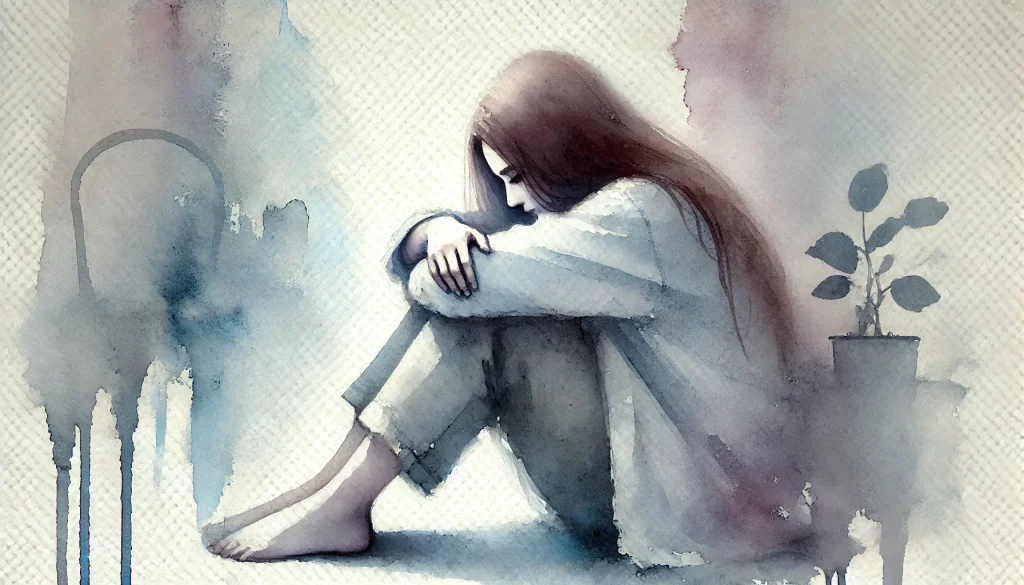
Depression is a complex and often misunderstood condition. It’s more than just feeling sad or having a rough day. The symptoms of depression can be varied and pervasive, affecting not just our mood, but also our thoughts, behaviours, and even our physical well-being. Let’s explore these symptoms together to better understand what depression can look like and to increase awareness among those who might be experiencing it.
One of the most common symptoms of depression is a persistent feeling of sadness or emptiness. It’s like a heavy cloud hanging over us that just won’t lift. This sadness isn’t tied to specific events and doesn’t go away after a few days. It lingers, often without a clear reason, making us feel stuck in a rut of despair. Alongside this, we might also feel hopeless or pessimistic, as if there’s no way out of the darkness we’re experiencing.
Depression can also rob us of our interest or pleasure in activities we used to enjoy. This is known as anhedonia. Imagine loving to play guitar or paint, but one day, it feels like the joy has been sucked out of these activities. Even spending time with friends or family might feel like a chore, and we may start avoiding social situations altogether. This withdrawal can lead to feelings of isolation, further deepening the sense of despair.
Another key symptom is changes in our sleep patterns. Depression can cause insomnia, where we struggle to fall asleep or stay asleep, or hypersomnia, where we sleep excessively and still feel tired. It’s as if our internal clock is out of sync, leaving us exhausted no matter how much rest we get. This disrupted sleep can exacerbate other symptoms, like fatigue and difficulty concentrating, making it hard to function during the day.
Speaking of concentration, depression often brings along cognitive symptoms, such as trouble focusing or making decisions. Our minds may feel foggy, and we might struggle with even simple tasks, like remembering appointments or following a conversation. It’s like our brain is wrapped in cotton, slowing down our thoughts and making everything seem more challenging than it used to be.
Physical symptoms are also a significant part of depression, though they might not be as commonly recognised. These can include unexplained aches and pains, changes in appetite or weight, and digestive issues. Some people might experience a decrease in appetite, while others might find themselves eating more, often as a way to cope with their feelings. These physical symptoms can sometimes mask the emotional aspects of depression, making it harder to identify.
Depression can also affect our self-esteem and self-worth. We might experience feelings of guilt or worthlessness, believing we’re a burden to others or that we’re not good enough. These negative thoughts can become a relentless inner dialogue, making it hard to see any positive aspects of ourselves or our lives. It’s like a distorted mirror that only reflects our flaws and shortcomings.
Imagine someone named Sam. Sam used to be an avid runner, loved spending time with friends, and enjoyed their job. Over time, however, Sam started feeling increasingly tired and found it hard to get out of bed in the morning. Running, once a passion, became a distant memory. Sam’s friends noticed the withdrawal but didn’t understand why Sam was avoiding them. At work, Sam struggled to concentrate and made mistakes, which only made them feel worse about themselves. Despite trying to sleep more, Sam always felt exhausted and couldn’t shake off a persistent feeling of sadness and hopelessness.
In Sam’s case, the combination of emotional, cognitive, and physical symptoms paints a picture of depression. It’s important to note that depression doesn’t look the same for everyone. Some people might experience more physical symptoms, while others might struggle more with emotional or cognitive challenges. The severity and combination of symptoms can vary widely from person to person. Understanding the symptoms of depression is crucial for recognising when someone might need help. It’s not just about feeling “down”; it’s a comprehensive condition that affects many aspects of our lives. By being aware of these signs, we can be more supportive to those who might be struggling and encourage them to seek the help they need. Depression is a real and serious condition. With the right understanding and support, you can get through it.
If you or someone you love is struggling with depression, you don’t have to go through it alone. At My Practice Counselling Melbourne, Jonathan Riley and our team are here to help. Reach out today to start your journey toward a healthier, happier life. Contact us now to book an appointment.